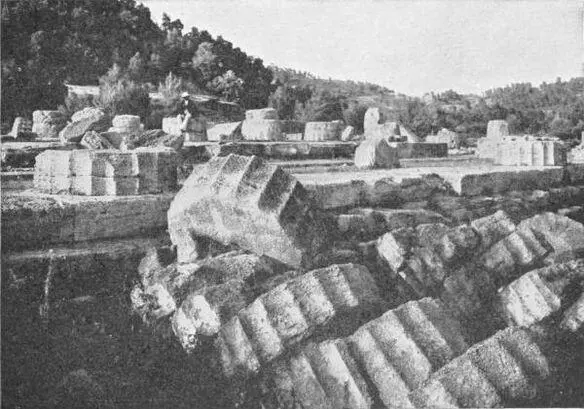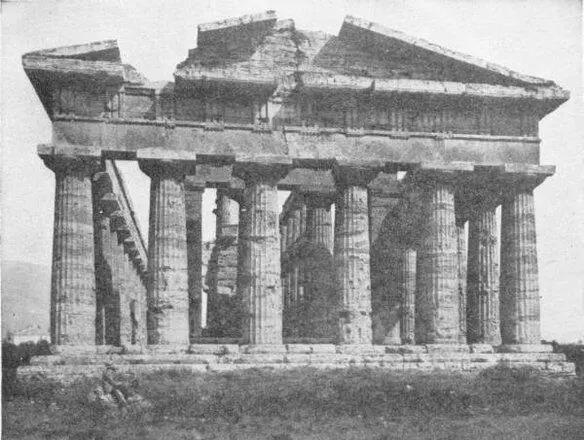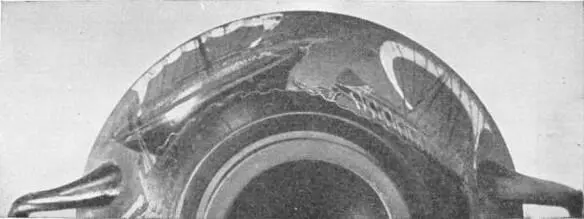Herbert Wells - A Short History of the World
Здесь есть возможность читать онлайн «Herbert Wells - A Short History of the World» весь текст электронной книги совершенно бесплатно (целиком полную версию без сокращений). В некоторых случаях можно слушать аудио, скачать через торрент в формате fb2 и присутствует краткое содержание. Год выпуска: 2011, Жанр: История, на английском языке. Описание произведения, (предисловие) а так же отзывы посетителей доступны на портале библиотеки ЛибКат.
- Название:A Short History of the World
- Автор:
- Жанр:
- Год:2011
- ISBN:нет данных
- Рейтинг книги:4 / 5. Голосов: 1
-
Избранное:Добавить в избранное
- Отзывы:
-
Ваша оценка:
- 80
- 1
- 2
- 3
- 4
- 5
A Short History of the World: краткое содержание, описание и аннотация
Предлагаем к чтению аннотацию, описание, краткое содержание или предисловие (зависит от того, что написал сам автор книги «A Short History of the World»). Если вы не нашли необходимую информацию о книге — напишите в комментариях, мы постараемся отыскать её.
A Short History of the World — читать онлайн бесплатно полную книгу (весь текст) целиком
Ниже представлен текст книги, разбитый по страницам. Система сохранения места последней прочитанной страницы, позволяет с удобством читать онлайн бесплатно книгу «A Short History of the World», без необходимости каждый раз заново искать на чём Вы остановились. Поставьте закладку, и сможете в любой момент перейти на страницу, на которой закончили чтение.
Интервал:
Закладка:

RUINS OF THE GREAT TEMPLE OF ZEUS AT OLYMPIA
Photo: Fred Boissonnas
And the same geographical conditions that kept the Greek states divided and various, kept them small. The largest states were smaller than many English counties, and it is doubtful if the population of any of their cities ever exceeded a third of a million. Few came up even to 50,000. There were unions of interest and sympathy but no coalescences. Cities made leagues and alliances as trade increased, and small cities put themselves under the protection of great ones. Yet all Greece was held together in a certain community of feeling by two things, by the epics and by the custom of taking part every fourth year in the athletic contests at Olympia. This did not prevent wars and feuds, but it mitigated something of the savagery of war between them, and a truce protected all travellers to and from the games. As time went on the sentiment of a common heritage grew and the number of states participating in the Olympic games increased until at last not only Greeks but competitors from the closely kindred countries of Epirus and Macedonia to the north were admitted.
The Greek cities grew in trade and importance, and the quality of their civilization rose steadily in the seventh and sixth centuries B.C. Their social life differed in many interesting points from the social life of the Ægean and river valley civilizations. They had splendid temples but the priesthood was not the great traditional body it was in the cities of the older world, the-repository of all knowledge, the storehouse of ideas. They had leaders and noble families, but no quasi- divine monarch surrounded by an elaborately organized court. Rather their organization was aristocratic, with leading families which kept each other in order. Even their so- called “democracies” were aristocratic; every citizen had a share in public affairs and came to the assembly in a democracy, but everybody was not a citizen . The Greek democracies were not like our modern “democracies” in which everyone has a vote. Many of the Greek democracies had a few hundred or a few thousand citizens and then many thousands of slaves, freedmen and so forth, with no share in public affairs. Generally in Greece affairs were in the hands of a community of substantial men. Their kings and their tyrants alike were just men set in front of other men or usurping a leadership; they were not quasi-divine overmen like Pharaoh or Minos or the monarchs of Mesopotamia. Both thought and government therefore had a freedom under Greek conditions such as they had known in none of the older civilizations. The Greeks had brought down into cities the individualism, the personal initiative of the wandering life of the northern parklands. They were the first republicans of importance in history.

THE TEMPLE OF NEPTUNE (POSEIDON), PÆSTUM, SICILY
Photo: Alinari
And we find that as they emerge from a condition of barbaric warfare a new thing becomes apparent in their intellectual life. We find men who are not priests seeking and recording knowledge and enquiring into the mysteries of life and being, in a way that has hitherto been the sublime privilege of priesthood or the presumptuous amusement of kings. We find already in the sixth century B.C.—perhaps while Isaiah was still prophesying in Babylon—such men as Thales and Anaximander of Miletus and Heraclitus of Ephesus, who were what we should now call independent gentlemen, giving their minds to shrewd questionings of the world in which we live, asking what its real nature was, whence it came and what its destiny might be, and refusing all ready-made or evasive answers. Of these questionings of the universe by the Greek mind, we shall have more to say a little later in this history. These Greek enquirers who begin to be remarkable in the sixth century B.C. are the first philosophers, the first “wisdom-lovers,” in the world.
And it may be noted here how important a century this sixth century B.C. was in the history of humanity. For not only were these Greek philosophers beginning the research for clear ideas about this universe and man’s place in it and Isaiah carrying Jewish prophecy to its sublimest levels, but as we shall tell later Gautama Buddha was then teaching in India and Confucius and Lao Tse in China. From Athens to the Pacific the human mind was astir.
XXIV
THE WARS OF THE GREEKS AND PERSIANS
WHILE the Greeks in the cities in Greece, South Italy and Asia Minor were embarking upon free intellectual enquiry and while in Babylon and Jerusalem the last of the Hebrew prophets were creating a free conscience for mankind, two adventurous Aryan peoples, the Medes and the Persians, were in possession of the civilization of the ancient world and were making a great empire, the Persian empire, which was far larger in extent than any empire the world had seen hitherto. Under Cyrus, Babylon and the rich and ancient civilization of Lydia had been added to the Persian rule; the Phœnician cities of the Levant and all the Greek cities in Asia Minor had been made tributary, Cambyses had subjected Egypt, and Darius I, the Mede, the third of the Persian rulers (521 B.C.), found himself monarch as it seemed of all the world. His couriers rode with his decrees from the Dardanelles to the Indus and from Upper Egypt to Central Asia.
The Greeks in Europe, it is true, Italy, Carthage, Sicily and the Spanish Phœnician settlements, were not under the Persian Peace; but they treated it with respect and the only people who gave any serious trouble were the old parent hordes of Nordic people in South Russia and Central Asia, the Scythians, who raided the northern and north-eastern borders.
Of course the population of this great Persian empire was not a population of Persians, The Persians were only the small conquering minority of this enormous realm. The rest of the population was what it had been before the Persians came from time immemorial, only that Persian was the administrative language. Trade and finance were still largely Semitic, Tyre and Sidon as of old were the great Mediterranean ports and Semitic shipping plied upon the seas. But many of these Semitic merchants and business people as they went from place to place already found a sympathetic and convenient common history in the Hebrew tradition and the Hebrew scriptures. A new element which was increasing rapidly in this empire was the Greek element. The Greeks were becoming serious rivals to the Semites upon the sea, and their detached and vigorous intelligence made them useful and, unprejudiced officials.

FINE PIECE OF ATHENIAN POTTERY
Showing Greek merchant vesselswith sails and oars statue on left
Brit. Mus.
It was on account of the Scythians that Darius I invaded Europe. He wanted to reach South Russia, the homeland of the Scythian horsemen. He crossed the Bosphorus with a great army and marched through Bulgaria to the Danube, crossed this by a bridge of boats and pushed far northward. His army suffered terribly. It was largely an infantry force and the mounted Scythians rode all round it, cut off its supplies, destroyed any stragglers and never came to a pitched battle. Darius was forced into an inglorious retreat.
Читать дальшеИнтервал:
Закладка:
Похожие книги на «A Short History of the World»
Представляем Вашему вниманию похожие книги на «A Short History of the World» списком для выбора. Мы отобрали схожую по названию и смыслу литературу в надежде предоставить читателям больше вариантов отыскать новые, интересные, ещё непрочитанные произведения.
Обсуждение, отзывы о книге «A Short History of the World» и просто собственные мнения читателей. Оставьте ваши комментарии, напишите, что Вы думаете о произведении, его смысле или главных героях. Укажите что конкретно понравилось, а что нет, и почему Вы так считаете.








